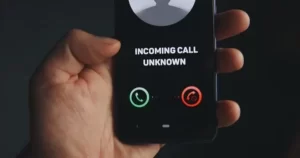Last updated on February 19, 2014
More and more of us are traveling regularly for our work. With this travel comes the requirement to get online when we are away both for personal and business reasons. Many of us, in the past, have been stunned by telephone charges when we making calls from abroad.
Companies such as Vodafone now have services such as Vodafone Passport so that you can keep your costs down when you are overseas. But what about Internet browsing? What are the costs? What are the options? And, what are the drawbacks?
This article will look at mobile broadband and other solutions overseas and then look at how some of the networks operate in terms of international browsing.
Your Internet Dongle and Mobile Broadband
Mobile broadband is actually fairly new to the consumer market. The UK mobile operator networks have improved vastly over the last year or two and are getting better with the emergence of 4G connectivity. 3G was a marked step forward from 2G and 4G will revolutionize our ability to get online wirelessly in the UK.
The way mobile broadband works is you have an Internet dongle, which looks much like the old memory sticks of the past, and plug it in to your USB port. Software is installed on to your device and you’re able to connect from it. Normally, you have a plug-and-play solution so you don’t have to click any buttons, but you may well have software on your device after plugging that will provide you with data on your consumption and so on.
Browsing the Internet and downloading data abroad can be very expensive. If you are catching up on soap operas on iPlayer or using Youtube, you could end up with a nasty shock when you get home. Online gaming is another big issue that you should probably avoid. Web browsing and email shouldn’t be a major problem though as the data consumption is fairly small.
Knowing Your Data Consumption
It really is important to understand the levels of data consumption of different internet activities if you are on a limited plan. When you are overseas you could be said to be on just about the most limited plan of all.
Here’s a brief guide so you can understand which kind of activities take up significant data so that you know what to avoid. There are far more comprehensive guides available online but this should give you a general understanding:
- ·120 hours of surfing the web is 1.5GB.
- ·Downloading one music album – 0.06GB.
- ·Watching a 10-minute Youtube video – 0.2GB
- ·Watching a streamed, low definition movie – 0.75GB
- ·Watching a high definition movie – 4.5GB
- ·Listening to 10 hours of Internet radio – 1.2GB
These are, of course, averages but it will give you an idea of which activities are the most intensive. Watching one high definition streamed movie is equivalent to 360 hours of web surfing, so be careful what activities you engage in. Think before you start doing something online as it is sometimes the hidden background internet activity that strips you of cash. Watch out for software updates in particular.
Vodafone Overseas Policies
Vodafone has a 3GB dongle package, which is just £15 a month. Their length of contract is 24 months and you can receive the dongle for free. Mobile coverage varies around the UK and with better coverage coming we should be able to get connectivity almost anywhere. Historically, receiving broadband coverage for your Internet dongle up in the Scottish highlands was an issue, so do a check to find out whether Vodafone covers your area.
If you’re looking to go to Spain, you can use your package for an extra £5 per day. This will allow you 15MB of data per day. Once you’ve used the 15MB, you’ll be charged around £5 for every MB used subsequently. Watch out for VoIP services as they incur additional charges and maybe £5 per day and £5 per MB. You may even be charged just for opening them up.
Three Broadband Overseas
Three Broadband starts from £10 for a 1GB dongle. You normally look at 18-month contracts. With Three, you’ll probably will be able to get coverage in the Scottish islands and the coverage around the country is pretty good. With the Three 4G spectrum lot purchases, you’re likely to see good connectivity around the UK.
At the moment, you can’t get broadband coverage in Spain, but you can in Ireland, Italy, Denmark, Austria, Hong Kong, Sweden, and Australia. It is possible to get online through Three Internet dongles in Spain, but you’ll be jumped into a different mobile network and service may be slow. The cost of surfing in Spain through your Three Mobile broadband is £3 per MB.
T-Mobile Overseas
T-Mobile prefer to use the word “USB modem” to Internet dongle. Their Internet dongle begins from £15 per month for 3GB and requires commitment to a 24-month contract. If you go for their higher package at £35 a month on a 24-month contract, you’ll get access to their free Wi-Fi service, which is available in Starbucks cafes, hotels, and airports. This can be great if you are a frequent traveler. On any package you are with on T-Mobile, you can gain access to the hotspots for an additional £10 per month.
Conclusion and Summary
It’s clear that an Internet dongle is an option when you are overseas. However, data consumption is extremely expensive. If you go on a holiday, then most hotels will have some sort of Internet café in which you can check your email and browse and this may be the best option for the majority of your consumption.
Be very careful of the activities that you do on ypur Internet dongle overseas as you may well store up hefty charges for when you get home. £3 per MB soon adds up if you’re streaming movies. If you ever had a telephone bill from overuse overseas, you’ll know to be wary with your Internet dongle.
Phil Turner considered an Internet dongle because it offered a lot of freedom for his connectivity. The online price comparison website uSwitch offered a wide range of deals which made his choice easier.


















Be First to Comment